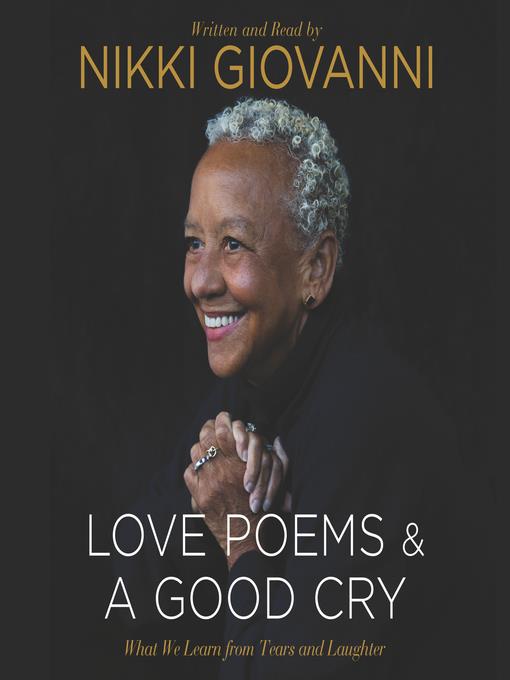
A Good Cry
What We Learn from Tears and Laughter
کتاب های مرتبط
- اطلاعات
- نقد و بررسی
- دیدگاه کاربران
نقد و بررسی

Starred review from November 6, 2017
Life doesn’t begin and end with the memory of family trauma or past scars, as evidenced by this intimate collection from poet and activist Giovanni (Chasing Utopia: A Hybrid). Her clear-eyed and heartfelt work reflects on how internal and external influences shaped her artistic journey. For Giovanni, poetry is not a self-contained medium. Rather, it’s a subtle and nuanced mosaic pieced together from the challenges of choosing to truly live rather than succumb to the stasis of merely existing. In a long prose poem that doubles as a brief biographical sketch, Giovanni writes, “It seems to me I’ve always been a small business. Now my business is poetry.” For Giovanni, poetry wouldn’t be possible without a self-propelled work ethic born out of the instability and violence she experienced in her youth. She also devotes several pieces to the late Maya Angelou, her friend and peer. Giovanni captures Angelou’s cultural impact and ability to hold court with a wide variety of thinkers, artists, and celebrities: “When they make the movie Doc: The Story of Maya Angelou half the fun will be who appears at the table.” Giovanni willingly confronts the uglier moments of her childhood while retaining a belief in the goodness of the human spirit.

Starred review from September 1, 2017
Plainspoken, moving, and direct, the multi-award-winning poet Giovanni draws a revealing line between heart and history in this 27th collection (after Chasing Utopia). In prose and poetry, she presents the family and friends she cherishes and the places where she was once young, now that she is old. She bares the marks they have all left on her--for good or ill--tracing their stories with a steady hand. For example, in "Baby West, " she says, "I spent the summer/ with Grandmother/ And Grandpapa/ Not realizing a man/ On a Latin school teacher's pension/ And a woman who occasionally cooked/ For white folk/ Could hardly afford/ Another mouth to feed/ More hot water for baths/ Electricity for the Radio WGN until it signed/ Off at midnight." And: "I am in the hospital/ Room/ With yellow tulips/ From Nancy and Diana/ And a beautiful bouquet/ From the English Department/ I am trying to learn/ How to cry/ It's not that my life/ Has been a lie" VERDICT This collection sometimes looks forward, sometimes back, and sometimes hovers in the moment. A warm invitation to sit beside Giovanni as she meditates on (her) life and the people who shaped her.--Iris S. Rosenberg, New York
Copyright 2017 Library Journal, LLC Used with permission.

August 1, 2017
Giovanni (Chasing Utopia, 2013) has been writing clarion poetry for 50 years, keeping pace with what has changed and what hasn't in the lives of African Americans, women, and others who have been discriminated against, marginalized, or unjustly maligned. She is a poet of distilled thought, direct address, bluesy beats, and jazzy swerves. Here she laughs about age, shrugs off illness, and revisits her past with serious intent. In the stunning and sorrowful Baby West, Giovanni remembers childhood traumas and how she repressed her tears. Now, she declares, I am trying to learn / How to cry because crying cleanses. As Giovanni embraces experience we cannot undo / the past she recalls her civil rights picketing and sitting-in, praises African American newspapers, and places hip-hop firmly in the continuum of African American culture. She also pays tribute to family and friends, including other poets, especially the late Maya Angelou. Ultimately this is more a book of gratitude than tears as Giovanni gives thanks for love and friendship, good food and nature's beauty, school and football, and that empowering force, poetry.(Reprinted with permission of Booklist, copyright 2017, American Library Association.)

























دیدگاه کاربران